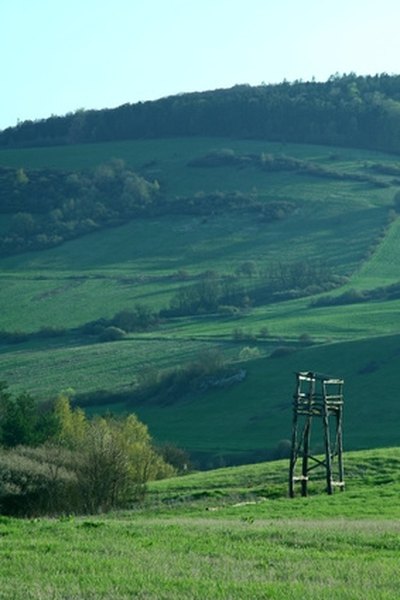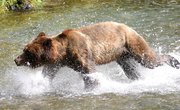
Hunting is a popular outdoor recreational activity where a hunter can perform a do-it-yourself hunt or hire an outfitter. Outfitters provide hunting trip packages for various species that include features such as hunting land, accommodations, guides and meals. Starting a hunting-guide-service business requires planning and preparation to coordinate hunting land, outfitter and guide licenses, state and federal tax permits, hunting equipment and lodging accommodations. After the initial set up, operating a hunting-guide service requires a year-round commitment for a successful business.
Items you will need
hunting rights or lease agreement
tax forms
outfitter license
hunting equipment
computer
Step 1
Secure hunting rights by purchasing or leasing hunting land. Evaluate the quality of the land and talk to the surrounding landowners to find out how they manage their hunting seasons. Consider how many outfitters are within the same area or region. The area, location and terrain will depend on the intended game species. Deer hunting, for example, will require wooded areas and agriculture. Waterfowl hunting needs marshes and wetlands.
Step 2
Attend a guide and outfitter school. Schools are located throughout North America and focus on teaching the basic requirements for becoming a successful outfitter and guide. A typical curriculum includes basic first-aid skills, wildlife behavior, hunting strategies, horsemanship, field judging and interpersonal skills.
Step 3
Apply for the required permits. Visit the state’s wildlife conservation department main office or website to find information regarding outfitter applications and permits. New Mexico and Wyoming, for example, require every outfitter and guide to obtain a permit and advertise their business using their registered guide number.
Step 4
Obtain local, state and federal tax permits. Visit the local courthouse for information on tax forms and any special permits for firearms and ammunition. Apply for a federal tax identification number through the Internal Revenue Service. Applications are accepted online and you can immediately print the permit.
Step 5
Purchase hunting equipment. You can start a hunting-guide service with basic equipment, but be prepared to buy additional equipment as you grow and book clients. Basic equipment includes tree stands, ground blinds, ATVs, GPS units, aerial maps of the hunting area, extra guns and ammunition for hunters who forget or lose their weapon during travel.
Step 6
Build a hunting cabin or arrange lodging accommodations for clients. Estimate the number of hunters who will be in camp at one time and build an appropriate number of bedrooms. If you don’t build a lodge, make an agreement with a local motel to provide lodging for your clients at a reduced rate. Additional buildings include a cleaning and butchering house.
Step 7
Advertise the new hunting-guide-service business. Attend hunting and outdoor trade shows in the winter and spring to network with potential clients and other industry professionals. Hunters will attend these shows looking for an outfitter and will often pay a deposit at the show. Build a website with general information about the hunting packages and use online social marketing sites such as Facebook or Twitter to attract visitors to the website.
Writer Bio
Based in Nebraska, Jeremy Hoefs began writing fitness, nutrition, outdoor and hunting articles in 2006. His articles have been published in "Star City Sports," "Hunting Fitness Magazine" and RutWear field journals, as well as on the Western Whitetail website. Hoefs graduated with a Bachelor of Science in exercise science from Nebraska Wesleyan University.



